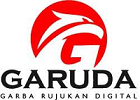Workshop and Deepening of Carbon Chemistry Materials Using Problem-Based Learning to Improve Literacy and Critical Thinking of High School Chemistry Teacher at MGMP Pangandaran [Workshop dan Pendalaman Materi Kimia Karbon Melalui Metode Problem-Based Learning Untuk Meningkatkan Literasi dan Berpikir Kritis Guru Kimia Sekolah Menengah Atas di MGMP Kimia Wilayah Pangandaran]
Abstract
Peningkatan kualitas sumber daya manusia merupakan komitmen bersama yang harus dilakukan oleh berbagai elemen baik pemerintah maupun masyarakat. Meningkatkan kualitas sumber daya manusia berarti membekalinya dengan berbagai keterampilan dan kompetensi. Kemampuan tersebut dapat dimiliki melalui berbagai kegiatan baik kegiatan belajar maupun berlatih yang didukung dengan berbagai elemen. Keterbatasan guru terhadap lierasi dan juga kemampuan berfikir kritis, terkadang menjadikan pembelajaran kimia lebih bersifat teoritis, dimana hal ini diduga menjadi salah satu penyebab rendahnya minat dan motivasi siswa untuk mempelajari kimia. Pengabdian Pada Masyarakat (P2M) tentang workshop pendalaman materi kimia karbon melalui Probleme based learning (PBL) dilakukan secara daring maupun luring dengan scenario setara 32 jp, yaitu 8 jp luring dan 24 jp daring. Adapun wilayah sasaran kegiatan P2M adalah MGMP kimia wilayah Pangandaran bekerjasama dengan guru-guru yang tergabung dalam MGMP Kabupaten Pangandaran, Kabupaten Ciamis, dan Kota Banjar. Adapun hasil yang diperoleh dari kegiatan P2M ini adalah analisis kurikulum dari beberapa sub-topik kimia karbon antara lain senyawa hidrokarbon, makromolekul senyawa organik, benzena, dan asam karboksilat. Selain analisis kurikulum peserta juga melakukan analisis konsepsi, analisis miskonsepsi, serta strategi pemblejaran menggunakan model PBL. Pada kegiatan ini guru-guru kimia kedepannya sangat membutuhkan workshop yang bertemakan pembelajaran berbasis PBL.
Improving the quality of human resources is a joint commitment that must be carried out by various elements, both government and society. Improving the quality of human resources means equipping them with various skills and competencies. These abilities can be possessed through various activities, both learning and practicing activities that are supported by various elements. The teacher's limitations on literacy and critical thinking skills sometimes make chemistry learning more theoretical, which is thought to be one of the causes of the low interest and motivation of students to study chemistry. Community Service (P2M) regarding workshops on deepening carbon chemistry through problem based learning (PBL) conducted online and offline with a scenario equivalent to 32 jp, namely 8 jp offline and 24 jp online. The target area for P2M activities is the Pangandaran chemistry MGMP in collaboration with teachers who are members of the Pangandaran Regency, Ciamis Regency, and Banjar City MGMP. The results obtained from this P2M activity are curriculum analysis of several sub-topics of carbon chemistry, including hydrocarbon compounds, macromolecules of organic compounds, benzene, and carboxylic acids. In addition to curriculum analysis, the participants also carried out conceptual analysis, misconception analysis, and learning strategies using the PBL model. In this activity, future chemistry teachers really need workshops with the theme of PBL-based learning.
Keywords
Full Text:
PDFReferences
Abanikannda, M. O. (2016). Influence of problem-based learning in chemistry on academic achievement of high school students in osun state, Nigeria. International Journal of Education, Learning and Development, 4(3), 55-63.
Aidoo, B., Boateng, S. K., Kissi, P. S., & Ofori, I. (2016). Effect of Problem-Based Learning on Students' Achievement in Chemistry. Journal of Education and Practice, 7(33), 103-108.
Belt, S. T., Evans, E. H, Mcreddy, T., Overton, T. L., & Summerfield, S. (2002). A problem-based learning approach to analytical and applied chemistry. University Chemistry Education, 6, 65–72.
Gürses, A., Açıkyıldız, M., Do ar, Ç., & Sözbilir, M. (2007). An investigation of effectiveness of problem-based learning at physical chemistry laboratory. Research in Science and Technological Education, 25, 99–111
Lacek, K. A. (2001). A Problem-Based Learning Curriculum Unit for High School Chemistry. Dissertation, California University of Pennsylvania.
Overton, T. L., & Randles, C. A. (2015). Beyond problem-based learning: using dynamic PBL in chemistry. Chemistry Education Research and Practice, 16(2), 251-259.
Tarhan, L., Ayar-Kayali, H., Urek, R. O., & Acar, B. (2008). Problem-based learning in 9th grade chemistry class:‘Intermolecular forces’. Research in Science Education, 38(3), 285-300.
Yuliati, Y., (2017), Literasi Sains dalam Pembelajaran IPA, Jurnal Cakrawala Pendas, 3:21-28.
Zejnilagić-Hajrić, M., Šabeta, A., & Nuić, I. (2015). The effects of problem-based learning on students' achievements in primary school chemistry. Bulletin of the Chemists and Technologists of Bosnia and Herzegovina, 44, 17-22.
DOI: https://doi.org/10.17509/jpi.v1i2.52438
Refbacks
- There are currently no refbacks.

This work is licensed under a Creative Commons Attribution-NonCommercial-ShareAlike 4.0 International License.



